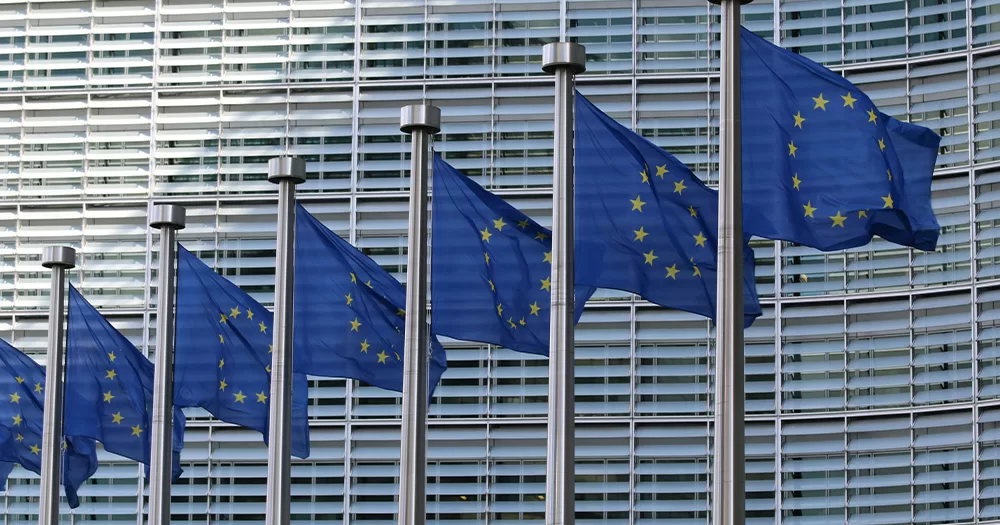Following a European Union (EU) vote on Wednesday, April 10, Ireland, along with other member states, will soon overhaul its current asylum system. The vote approved a new EU-wide policy that would harden the trading bloc’s borders that have remained in deadlock since the implementation of the International Protection Act in 2015.
According to Irish Minister for Justice and Fine Gael MP Helen McEntee, the International Protection Act will be repealed and replaced with new guidelines that will enforce legally binding timelines for making decisions on international protection applications and appeals.
The updated rules are said to place a greater focus on efficient returns for unsuccessful asylum applications. Furthermore, EU member states will be required to accelerate processing for applicants from safe countries, as well as those without proper immigration documentation.
The new policy vote also allows for more asylum seekers to be detained at border facilities and permits EU member states to opt out of taking in those seeking international protection so long as they make financial contributions of €20,000 for each person they refuse to host.
While Sinn Fein opposed the vote, Minister McEntee said it marked “a historical step, which provides a robust legislative framework to address migration and asylum across the EU.”
McEntee went on to describe the updated guidelines as “a shared European solution to a shared European challenge”.
The EU vote will most heavily affect the increased number of Palestinian refugees who have entered Ireland recently – as many as 127 in March 2024 alone, according to The Irish Times. The new system overhaul will similarly affect LGBTQ+ asylum seekers attempting to enter the country after facing persecution based on gender identity and/or sexual orientation.
Ireland doesn’t actively track the number of LGBTQ+ refugees and asylum seekers who enter the country, however, according to a 2011 report titled ‘Fleeing Homophobia, Asylum Claims Related to Sexual Orientation and Gender Identity in Europe’ more than 10,000 people file asylum claims on the basis of their sexual orientation each year in the EU.
While there are a number of organisations working to aid LGBTQ+ asylum seekers in Ireland, including LGBT Ireland, the Irish Refugee Council has previously outlined a number of challenges facing queer people seeking international protection.
These challenges, outlined in a 2023 article from STAND, included a “lack of early recognition of the unique needs of LGBT applicants, as well as delayed access to specialised medical guidance, counselling services, social assistance, and legal counsel attentive to their claims.”
The Irish Refugee Council similarly stated that LGBTQ+ asylum seekers also face challenges when it comes to the “evaluation of the legitimacy of cases for asylum based on sexual orientation or gender identity,” and “confinement to Direct Provision accommodation with scant access to essential services and social supports.”
In regards to Palestinian refugees in Ireland, following the EU vote, the Department of Justice said it currently has no plans to set up a relocation or resettlement programme for those coming to the country after fleeing the war in Gaza despite similar schemes having been established to support Syrian and Afghan refugees in the past.
“While all existing immigration arrangements and programmes are kept under ongoing review, the department has no plans to establish a dedicated programme along the lines suggested,” said a spokesperson for the Department of Justice on Wednesday.
They continued, saying that Minister McEntee was “acutely aware of the grave humanitarian crisis in Gaza” and is working with the Department of Foreign Affairs to ensure “a co-ordinated national response to this volatile and evolving situation”.
Concerns following the EU vote are that the updated asylum system will aid in the creation of a “fortress Europe”, a move that Belgian Green MEP Saskia Bricmont said will play into the hands of the far-right movement that has been gaining traction through the EU in recent years.
© 2024 GCN (Gay Community News). All rights reserved.
Support GCN
GCN is a free, vital resource for Ireland’s LGBTQ+ community since 1988.
GCN is a trading name of National LGBT Federation CLG, a registered charity - Charity Number: 20034580.
GCN relies on the generous support of the community and allies to sustain the crucial work that we do. Producing GCN is costly, and, in an industry which has been hugely impacted by rising costs, we need your support to help sustain and grow this vital resource.
Supporting GCN for as little as €1.99 per month will help us continue our work as Ireland’s free, independent LGBTQ+ media.
